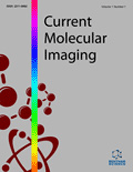Abstract
Cancer is uncontrolled growth of an abnormal mass of cells. Cancerous cells exhibit differential expression of receptors, as compared to healthy cells, which can be employed to deliver imaging and/or therapeutic agents specifically to the tumor tissue. Specific targeting of proteins on cancer cells for molecular imaging by nanoparticles loaded with multiple reporters can enhance the sensitivity of cancer detection over non-targeted small molecule agents. Nanoparticles (NPs) are one of the major technologies that utilize receptor overexpression to image and manipulate cancer cells. A plethora of NPs such as liposomes, polymeric, gold, iron oxide NPs and dendrimers have been investigated for cancer imaging and therapy. However, this mini-review is focused on liposomes, polymeric NPs and dendrimers, modified with receptor- targeting peptides. Conjugation of receptor-targeting ligands onto nanocarriers enables specific delivery to tumor tissue. PEGylation of nanocarriers further improves their bioavailability and pharmacokinetic properties. Peptide-based receptor-targeted nano-vectors present a promising future for clinical treatment and diagnosis of cancer. Peptidefunctionalized nanocarriers can be designed readily and synthesized with ease. This mini-review aims to provide an overview of recent developments in peptide-based receptor-targeted nanoparticles in cancer imaging and therapy.
Keywords: Cancer, dendrimers, diagnosis, ligands, liposomes, nanoparticles, peptides, polymers, therapy.
 19
19

